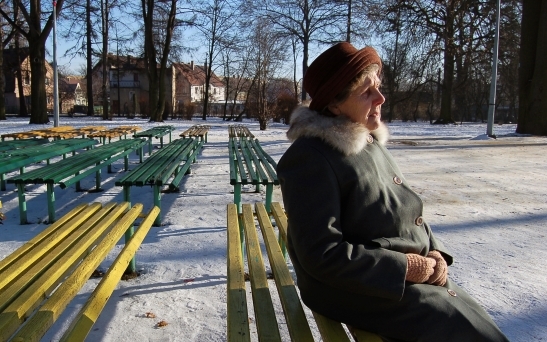
CAMPAIGNERS are concerned as cold call report revealed the plight of pensioners who are isolated, unhappy and just desperate for someone to talk to…
It’s the festive TV advert that is guaranteed to get people reaching for their hankies.
But this year’s John Lewis ad, released last week, has a serious message at its heart.
The tearkjerking commercial, featuring an elderly man alone on the moon, highlights the growing problem of loneliness among Britain’s elderly people.
https://youtube.com/watch?v=wuz2ILq4UeA
The ad, made in partnership with charity Age UK, follows troubling revelations that some of Britain’s elderly are so lonely they actually look forward to nuisance calls.
Disturbing new evidence has emerged that pensioners who feel isolated often welcome unsolicited sales pitches because they’re so desperate for someone to talk to.
In some cases they are even returning nuisance call-blocking technology designed to protect them from harm.
The disclosure comes in the wake of a report that found one million older people are suffering from acute loneliness, while two-and-a-half million more are afraid of developing the condition.
Lesley Carcary, of campaign group Action on Elder Abuse Scotland, said: “This reinforces the need for loneliness to be treated as a public health priority.
“If elderly people are going to these lengths to have contact, it goes without saying they will be susceptible to financial abuse.”
As part of a trial by Trading Standards into the effectiveness of nuisance call-blocking technology, devices were installed into the homes of hundreds of older and vulnerable people across the UK.
The subsequent findings revealed that the average pensioner was being bombarded with 60 cold calls a month and that vulnerable Scots were far more likely to be targeted than their English counterparts.
As reported in this newspaper last week, it also found that telemarketing companies were deliberately targeting people with dementia as they believed they were more likely to cave in to their demands.
One of the study’s conclusions is that every elderly person could benefit from nuisance call-blockers in their home.
But, astonishingly, Ms Carcary said there was evidence some pensioners return the devices because cold callers were their only source of conversation.
She added: “We know of one elderly person who was targeted first by phone to get her to sign up for work she didn’t need.
“But from there it escalated to the point where the man in question was coming round to her house and the woman was prepared to make him food and do his washing purely as a means of having someone to talk to.
“It is so important that we raise awareness of just how devastating loneliness can be.
“The issue is not about the effectiveness of call-filtering technology, it’s about ensuring we don’t get to a situation where the most vulnerable feel they’ve nowhere else to turn for social interaction.”
Another charity, Age Scotland, said it had also heard of examples of the elderly longing for nuisance calls “just to listen to someone speak”.
A spokesman added: “Around 42,000 older Scots are estimated to feel lonely. This can have a serious effect on their mental and physical health and has been likened to having a fifteen-a-day smoking habit and is twice as harmful as obesity.”
The organisation carried out a study into pensioner isolation last year which found two in five were so lonely they described their pet or the TV as their main company.
In Scotland, nine councils, including Angus, Edinburgh and North Lanarkshire, have handed out free or discounted call-blockers to older and vulnerable people.
One, East Ayrshire, has also launched a telephone befriending service as part of the scheme.
A spokeswoman said: “We try to offer a service called ‘Connect Call’, a befriending system, whereby individuals can be called approximately once a week by trained volunteers to reduce the risk of loneliness and isolation. The feedback has been very positive so far.”
But another council, East Dunbartonshire, said around 10% of the call-blockers it had issued had been returned, although this is predominantly because of cost.
Janet Morrison, of charity Independent Age, said she was “very sad” to hear some lonely pensioners were sending back call-blockers.
She added: “Loneliness is known to have profound effects on health and mental wellbeing. We must reflect on what more we can do to help family, neighbours and friends so fewer older people experience isolation.”
Sandra White MSP, co-convener of the Scottish Parliament’s Equal Opportunities Committee, which has investigated loneliness among older people, said: “When you hear of lengths people are prepared to go to avoid loneliness, it rams home how big an issue this is.”
In June, the UK Government announced plans to distribute free call-blocking technology to those deemed to be at a high risk of “financial damage and personal distress”.
Discussions about the scheme are ongoing but a spokesman for culture minister Ed Vaizey said they hoped to start handing out the devices “before the end of the year”.
Last week, a survey revealed one in five people aged 60 and over feel they have no one to turn to in times of loneliness.

Enjoy the convenience of having The Sunday Post delivered as a digital ePaper straight to your smartphone, tablet or computer.
Subscribe for only £5.49 a month and enjoy all the benefits of the printed paper as a digital replica.
Subscribe